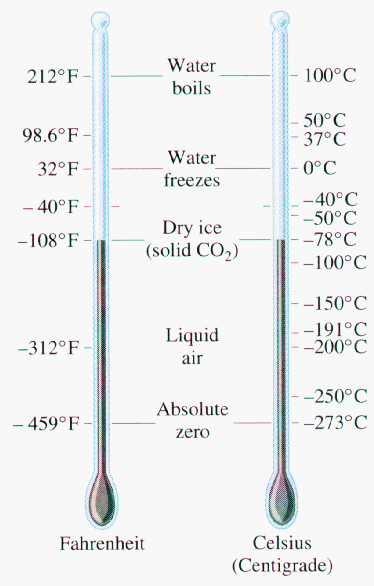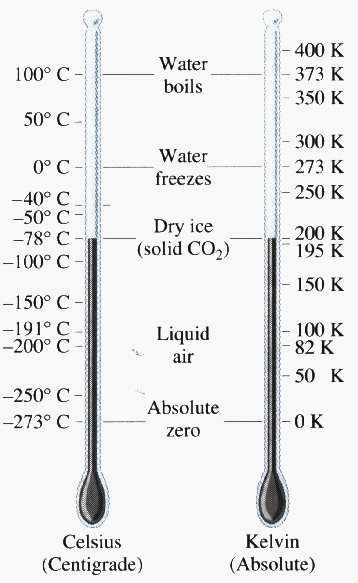
Fahrenheit temperature scale is a scale based on 32 for the freezing point of water and 212 for the boiling point of water, the interval between the two being divided into 180 parts. The 18th-century German physicist Daniel Gabriel Fahrenheit originally took as the zero of his scale the temperature of an equal ice-salt mixture and selected the values of 30 and 90 for the freezing point of water and normal body temperature, respectively; these later were revised to 32 and 96, but the final scale required an adjustment to 98.6 for the latter value.
Until the 1970s the Fahrenheit temperature scale was in general common use in English-speaking countries; the Celsius, or centigrade, scale was employed in most other countries and for scientific purposes worldwide. Since that time, however, most English-speaking countries have officially adopted the Celsius scale. The conversion formula for a temperature that is expressed on the Celsius (C) scale to its Fahrenheit (F) representation is: F = 9/5C + 32.

Celsius temperature scale also called centigrade temperature scale, is the scale based on 0 for the freezing point of water and 100 for the boiling point of water. Invented in 1742 by the Swedish astronomer Anders Celsius, it is sometimes called the centigrade scale because of the 100-degree interval between the defined points. The following formula can be used to convert a temperature from its representation on the Fahrenheit ( F) scale to the Celsius (C) value: C = 5/9(F - 32). The Celsius scale is in general use wherever metric units have become accepted, and it is used in scientific work everywhere.

Kelvin temperature scale is the base unit of thermodynamic temperature measurement in the International System (SI) of measurement. It is defined as 1/ 273.16 of the triple point (equilibrium among the solid, liquid, and gaseous phases) of pure water. The kelvin (symbol K without the degree sign []) is also the fundamental unit of the Kelvin scale, an absolute temperature scale named for the British physicist William Thomson, Baron Kelvin. Such a scale has as its zero point absolute zero, the theoretical temperature at which the molecules of a substance have the lowest energy. Many physical laws and formulas can be expressed more simply when an absolute temperature scale is used; accordingly, the Kelvin scale has been adopted as the international standard for scientific temperature measurement. The Kelvin scale is related to the Celsius scale. The difference between the freezing and boiling points of water is 100 degrees in each, so that the kelvin has the same magnitude as the degree Celsius.
Excerpt from the Encyclopedia Britannica without permission.